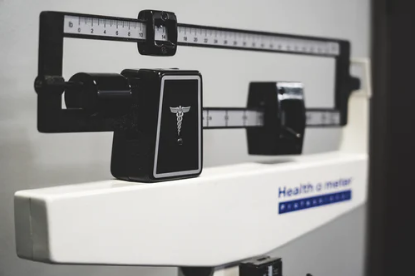 The four types of Diabetes are listed here with the risk factors, and some prevention tips.
The four types of Diabetes are listed here with the risk factors, and some prevention tips.
Type 1 Diabetes
Type 1 Diabetes is thought to be caused by an immune reaction (the body attacks itself by mistake). Risk factors for type 1 diabetes are not as clear as for prediabetes and type 2 diabetes. Known risk factors include:
- Family history: Having a parent, brother, or sister with type 1 diabetes.
- Age: You can get type 1 diabetes at any age, but it is more likely to develop when you are a child, teen, or young adult.
In the United States, whites are more likely to develop type 1 diabetes than African Americans and Hispanic/Latino Americans.
Currently, no one knows how to prevent type 1 diabetes.
Type 2 Diabetes
You are at risk for developing Type 2 Diabetes if you:

- Have prediabetes.
- Are overweight.
- Are 45 years or older.
- Have a parent, brother, or sister with type 2 diabetes.
- Are physically active less than 3 times a week.
- Have ever had gestational diabetes (diabetes during pregnancy) or given birth to a baby who weighed more than 9 pounds.
- Are African American, Hispanic/Latino American, American Indian, or Alaska Native (some Pacific Islanders and Asian Americans are also at higher risk).
If you have non-alcoholic fatty liver disease you may also be at risk for type 2 diabetes.
You can prevent or delay type 2 diabetes with simple, proven lifestyle changes such as losing weight if you are overweight, eating healthier, and getting regular physical activity. See below for some weight loss tips.
Prediabetes
You are at risk for developing Prediabetes if you:
- Are overweight.
- Are 45 years or older.
- Have a parent, brother, or sister with type 2 diabetes.
- Are physically active less than 3 times a week.
- Have ever had gestational diabetes (diabetes during pregnancy) or given birth to a baby who weighed more than 9 pounds.
- Are African American, Hispanic/Latino American, American Indian, or Alaska Native (some Pacific Islanders and Asian Americans are also at higher risk).
You can prevent or reverse prediabetes with simple, proven lifestyle changes such as losing weight if you are overweight, eating healthier, and getting regular physical activity. The CDC-led National Diabetes Prevention Program can help you make healthy changes that have lasting results.
Gestational Diabetes
You are at risk for developing Gestational Diabetes (diabetes while pregnant) if you:
- Had gestational diabetes during a previous pregnancy.
- Have given birth to a baby who weighed more than 9 pounds.
- Are overweight.
- Are 25 years or older.
- Have a family history of type 2 diabetes.
- Have a hormone disorder called Polycystic Ovary Syndrome (PCOS).
- Are African American, Hispanic/Latino American, American Indian, Alaska Native, Native Hawaiian, or Pacific Islander.
Gestational diabetes usually goes away after your baby is born but increases your risk for type 2 diabetes later in life. Your baby is more likely to have obesity as a child or teen, and is more likely to develop type 2 diabetes later in life too.
Before you get pregnant, you may be able to prevent gestational diabetes by losing weight if you’re overweight, eating healthier, and getting regular physical activity. Keep reading for some weight loss tips.
Weight Loss Tips
Here are a few ideas to help you get started:
 Use the Scale: Try weighing yourself each day to see your progress.
Use the Scale: Try weighing yourself each day to see your progress.
Eat Breakfast: Eating a morning meal may be linked to lower weight. In a study of more than 5,000 people with diabetes, those who ate breakfast 7 days a week had a lower Body Mass Index (BMI) than those who sometimes skipped it.
Be Careful with Fast Food: If you hit the local burger joint, choose wisely. Most fast food places offer salads, fruit and grilled chicken sandwiches. Skip the mayo and the cheese and ask for salad dressing on the side. Maybe eat just one part of the bun and use mustard. Skip the cola and get unsweetened iced tea or water. All these little changes can add up.
Keep a Food Journal: One study showed that people who kept a daily food diary lost significantly more weight than those who did not. This helps you identify opportunities for change in your diet. You don't have to give up your favorite foods, just cut back on the amount.
Celebrate Progress: When you choose to eat a healthier meal over an unhealthy one, or when you take a 10-minute walk instead of going for a bag of potato chips, know you are on your way to making small changes that will pay off. Enjoy these little successes.
Click on the banners below for more information about
diabetes and healthy weight loss.